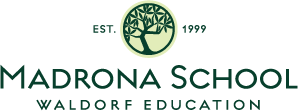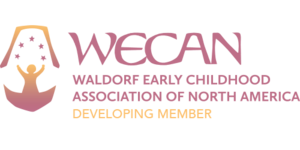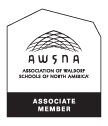‘U’ is for Madrona School’s unhurried approach to beginning school. Our youngest students attend Madrona with their parents or caregivers as a part of our parent-child program. This unique once-weekly class allows children a gentle, warm and nurturing introduction to school as a social setting outside of their homes, and it provides a community for their caregivers too. We offer a warm snack, lots of time to play with our open-ended and natural toys both indoors and out, a circle time with songs and story and some parent education. It's a mini-version of our preschool and kindergarten classes, in effect, and serves to introduce families to Waldorf education, as well as support them in creating a rich, nurturing home environment. As a parent, you'll find yourself learning songs for transitions that you'll still sing years later! This class is also often the beginning of a class community , and some of our grade school students (and their parents!) "met" in parent-child.















